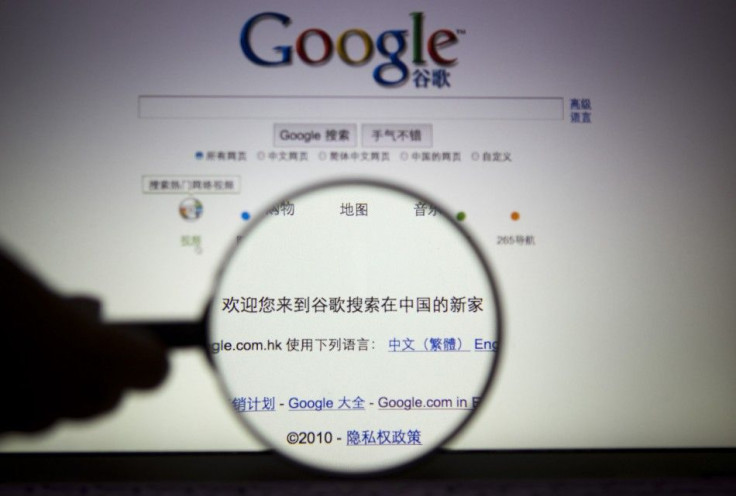ACTA Treaty 2012: All About the New SOPA

ACTA is the latest anti-counterfeiting scheme to gain the attention of Internet freedom fighters from the Free Software Foundation to the Anonymous hacktivist collective, many of whom compare it to America's controversial SOPA legislation.
The Anti-Counterfeiting Trade Agreement is the most prominent current threat to Internet freedom, according to its opponents, now that the furor over the Stop Online Piracy Act has died down following a major Internet blackout last week that led U.S. lawmakers to pull the controversial bill.
As such, the Web is focusing all of the momentum from its historic victory in the fight over SOPA and the companion Protect IP Act into derailing the current international negotiations over ACTA, despite the fact that a number of the world's countries -- including the U.S. -- have already signed the treaty. But opponents fight on, as the treaty is not yet in force, as some countries including the European Union have yet to sign it.
A proposed agreement that would create an international framework and set of standards for enforcing intellectual property rights, ACTA creates a voluntary legal regime that countries may choose to join. It creates a governing body outside of the United Nations and other international institutions, allowing for copyright and intellectual property cases to be adjudicated across national lines without having to contend with conflicting national laws and legal schemes.
The treaty is similar to SOPA and PIPA in that all three would create new laws aimed at reducing Internet piracy, but that opponents including Google, Wikipedia and Reddit believe would quash innovation, limit online freedom and infringe on First Amendment rights. As such, many of the opponents of the SOPA and PIPA acts have gotten involved in the fight to derail the ACTA treaty.
Preliminary negotiations on the ACTA treaty took place in the mid-2000s, and a signing ceremony was held on Oct. 1, 2011, in Japan. The United States, Australia, Canada, Japan, Morocco, New Zealand, Singapore, and South Korea signed the treaty, while the European Union, Mexico, and Switzerland declined to sign but indicated that they plan to do so in the future.
Poland announced last week that it will sign the treaty on Jan. 26, drawing the ire of Polish groups opposed to the law, including representatives of the Anonymous collective. The opposition groups have threatened to stage a Web blackout that day similar to the SOPA blackout if the Polish government goes through with the signing. On Sunday the hacktivist collective shut down the Polish prime minister's Web site in order to demonstrate its opposition to ACTA, Poland's TheeNews.pl reported.
One major critique of the treaty is that almost all of the negotiations on ACTA have been done behind closed doors, and without the benefit of WikiLeaks the public would have very little information about the treaty's contents.
The nations privy to the negotiations contend that it would have benefits for the rule of law, ease of resolving international copyright disputes and intellectual property protections.
The July 2008 G8 Leaders' Communiqué on the World Economy included the following statement in support of the pact: We encourage the acceleration of negotiations to establish a new international legal framework, the Anti-Counterfeiting Trade Agreement (ACTA), and seek to complete the negotiation by the end of this year. We will promote practical cooperation between our countries to develop tools to combat new techniques in counterfeiting and piracy and spread best practices.
But opponents say that the G8 is misguided, and a petition on WhiteHouse.gov with more than 6,000 signatures is currently on file with the Obama administration, calling on it to end ACTA and protect our right to Internet privacy.
The petition goes on to offer a detailed critique of the ACTA treaty:
It is somewhat similar to SOPA/PIPA, however ACTA is an executive agreement between countries besides the United States, and it can be passed without the approval from Congress and the Supreme Court. It is potentially hazardous to the Internet we know and how it works, the petition reads. We need to stop ACTA before it is finally approved by all countries involved. If you value your privacy and you don't want 'Big Brother' watching over you, sign this petition and spread the word. Research ACTA and see just how dangerous it is to the Internet, our privacy, and our liberties.
In fact, even a Democratic U.S. Senator, Sen. Ron Wyden of Oregon, has questioned the constitutionality of Obama being allowed to sign an international treaty of this sort without gaining approval from the U.S. Congress, writing the following in an October 2011 letter to the president: The executive branch lacks constitutional authority to enter into binding international agreements on matters under Congress's plenary powers, including the Article I powers to regulate foreign commerce and protect intellectual property, the letter states. Yet, through ACTA and without your clarification, the USTR looks to be claiming the authority to do just that.
Forbes.com adds to the list of problems with ACTA that opponents have identified, adding that it goes beyond simply policing the Web: ACTA bypasses the sovereign laws of participating nations, forcing ISPs across the globe to adopt these draconian measures, the magazine wrote. Worse, it goes much further than the Internet, cracking down on generic drugs and making food patents even more radical than they are by enforcing a global standard on seed patents that threatens local farmers and food independence across the developed world.
Anonymous has this primer on ACTA and the group's strong opposition to the international treaty:
MUST READ - iPad 3 Features: What to Expect and Not to Expect (Rumors Roundup)
MUST READ - iOS 5 Untethered Jailbreak Absinthe: Should You Jailbreak Your A5 Device?
MUST READ - MacWorld-iWorld Expo 2012: Top 10 Must-Have Gadgets, Software and Apps (PHOTOS)
© Copyright IBTimes 2024. All rights reserved.





















